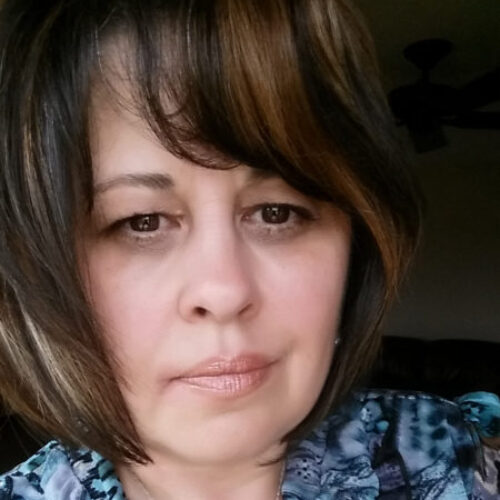Before my diagnosis, I was a 46-year-old single mom raising two teenagers, working full time, and exercising regularly.
I was active and taking care of myself — or at least I thought I was. At my well-woman visit, I tested positive for the human papillomavirus, which can cause cancer.
I remember them giving me a one-sheet flyer with some facts about HPV, but I kind of just dismissed it. My doctor said I should come in on a biannual basis to monitor the HPV, but life got busy and before I knew it, two years had passed and I hadn’t been back in front of my doctor.
I started experiencing what I thought were signs of premenopause at this point. My mother and my grandmother both went through menopause early, so I just thought I was aligning to go through early menopause as well.
I was having hot flashes, discomfort and pain during intercourse, and some spotting during my cycle. My period cycle was also tapering off, which again, to me, was a premenopausal sign and not potentially related to cancer.
After a doctor’s appointment and some testing, they discovered that I had cervical cancer. Had I made the connection between those symptoms and being HPV positive, I probably would not have let so much time pass between doctors’ appointments.
In retrospect, I really had some signs of cervical cancer. It was an overwhelming diagnosis. I had to have multiple surgeries, chemotherapy, and radiation; most of the organs in my pelvic area have been removed and I have a urostomy and a colostomy in place of a bladder and colon.
“Everyone should make it a priority to get in front of a doctor every year at a well visit. And make sure you come to your appointment prepared.”
Once I made it through treatment, I wanted to hold on to as much joy as possible, and move forward with my life by helping other women take care of themselves and listen to their bodies.
Everyone should make it a priority to get in front of a doctor every year at a well visit. And make sure you come to your appointment prepared. The time with your physician is precious, and that is the optimal opportunity to ask questions. Write them down or put them on your phone, to make sure you get all your questions in.
Besides a well visit, make an appointment and have a conversation with your doctor if something doesn’t feel right, rather than dismissing your symptoms. They can recommend next steps if something is wrong, or reassure you that everything is fine.
Now, we have an HPV vaccine that can prevent my cancer, as well as five other cancers that affect women and men. If you have children between the ages of 9 and 15, make sure they get the HPV vaccine.
Educate yourself about signs and symptoms of cervical cancer. There really are a lot of signs — including spotting between periods, lower back or leg pain, and pain or discomfort during intercourse — and being mindful of those signs and then taking it a step further to talk to your doctor about it can be lifesaving.
Symptoms
- hot flashes
- discomfort and pain during intercourse
- spotting during cycle










